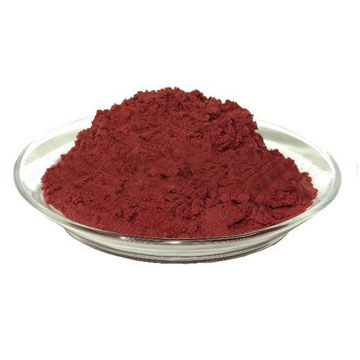Mirikizumab Up-Regulates Genes Associated with Mucosal Healing in Ulcerative Colitis for Up to One Year in Phase 2 Study
(2021年)https://www.pharmasources.com/
Eli Lilly and Company (NYSE: LLY) announced new Phase 2 data showing that gene expression changes induced by mirikizumab in patients with ulcerative colitis (UC) over a 12-week induction treatment were maintained for up to one year. These gene transcript changes, which were unique among those who responded to mirikizumab compared to placebo, were associated with mucosal healing, indicating that mirikizumab affects a distinct molecular healing pathway, compared to the spontaneous healing that occurred among those who responded to placebo.
Mirikizumab is being studied in Phase 3 trials for UC and Crohn's disease (CD), two forms of inflammatory bowel disease that can cause serious and debilitating symptoms, and disruptions in daily life.
A separate analysis of patients with moderate to severe UC evaluated meaningful improvement of bowel urgency, a common symptom of UC that is associated with higher levels of disease activity, decreased work productivity and worse quality of life. These results are being presented virtually at the Congress of the European Crohn's and Colitis Organisation (ECCO), July 8-10, 2021.
Mirikizumab Showed Early and Sustained Gene Expression Changes Associated with Mucosal Healing in UC for Up to One Year
In a previously-published Phase 2 study evaluating patients with UC, mirikizumab down-regulated several gene transcripts associated with inflamed mucosa and up-regulated gene transcripts correlated with healthy mucosa and markers of functional healing after 12 weeks, as defined by clinical disease indices of endoscopy and histology.
In this analysis, a set of differentially-expressed gene transcripts were identified in patients who responded to mirikizumab that were not found in those who responded to placebo at 12 weeks. Of the modulated genes, 71% (n=63) were present only in patients who responded to mirikizumab, 5.6% (n=5) were present only in those who responded to placebo, and 23.6% (n=21) were present in both groups. Effect size estimates were also examined to account for differences in sample size and associated power between treatment groups. The set of gene transcripts regulated by mirikizumab correlated with UC disease activity indices, demonstrating consistency of these molecular changes across symptomatic, clinical, endoscopic and histologic indices of UC disease activity.
The results observed at 12 weeks were maintained for up to one year in patients receiving mirikizumab. For methodology, see the "About the Studies" section below.
"In the first clinical study of an anti-IL-23p19 therapy in ulcerative colitis to evaluate gene expression on this large scale, mirikizumab demonstrated an ability to down-regulate the gene transcripts associated with inflammation and up-regulate transcripts associated with mucosal healing in ulcerative colitis, with changes maintained for up to one year," said Walter Reinisch, Director of the Clinical IBD Study Group, Department of Gastroenterology and Hepatology, Medical University of Vienna. "These results support the continued development of mirikizumab as a potential treatment option for ulcerative colitis, given the importance of mucosal healing and functional healing as key treatment goals for this difficult-to-treat disease."
Patients with UC Reported on Definition of Meaningful Change in Bowel Urgency
Bowel urgency, the sudden or immediate need for a bowel movement, is one of the most distressing symptoms experienced by patients with UC. In this qualitative study of patients with moderate to severe UC, patients defined both bowel urgency severity and what would be a meaningful improvement in bowel urgency based on an 11-point numeric rating scale (NRS).
In this study, half of patients with UC (50%, n=10) reported that a 1-point change on the urgency NRS would be a meaningful change, indicating improved emotional well-being and greater confidence to leave the home or do their work.
A quarter of respondents (25%, n=5) indicated that a 2-point improvement in the urgency NRS was required to be considered meaningful, and another 25% of respondents (n=5) noted that a 3-point change or more was needed to achieve improvements in quality of life.
Importantly, among the 75% of patients who endorsed a 1 to 2-point change in urgency NRS, initial scores on the urgency NRS ranged from 2 to 9, indicating that this amount of change was meaningful regardless of the severity of an individual's bowel urgency. For methodology, see the "About the Studies" section below.
"We are very excited to present these findings at ECCO, which provide one of the first analyses from the patient perspective on the impact of bowel urgency and what would constitute a meaningful change," said Prentice Stovall, Jr., Global Development Leader, Immunology at Lilly. "Given the impact that bowel urgency has on an individual's ability to work and overall quality of life, this analysis will help us further understand the experience of people with UC and the potential impact of our treatments on this burdensome and debilitating symptom."
Pharmasources is a professional pharma packaging machinery manufacturers, we provide pharmaceutical sachet filling machines, pharmaceutical stick packaging machine, pill blister pack machine and etc. Want to know more? Contact us now.
- «前のできごと |
- 次のできごと»
- このできごとのURL:



コメント